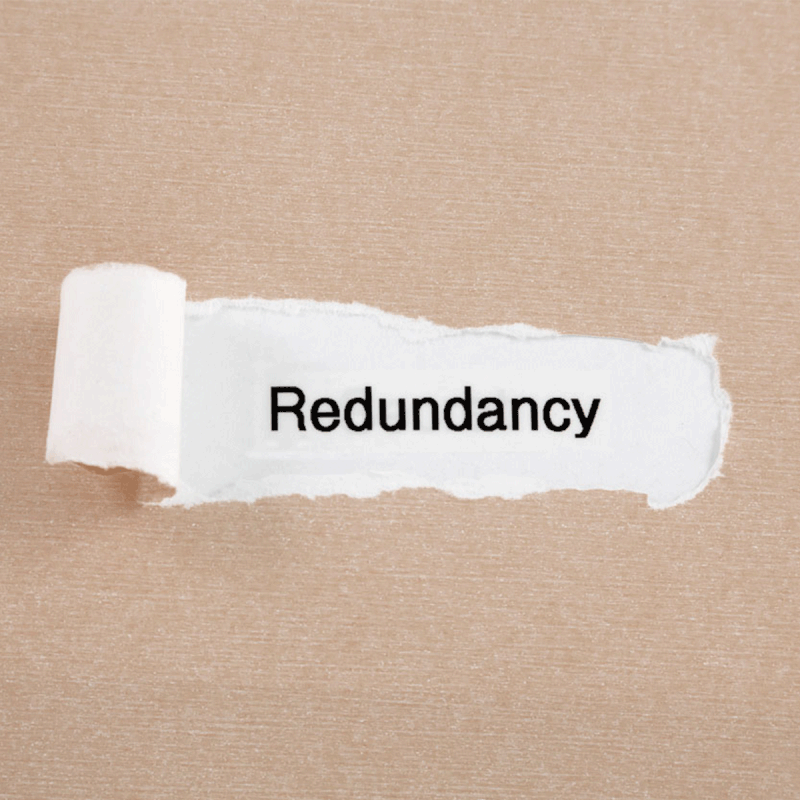What To Do If You’re Made Redundant
Stay Positive
You know when people say, “Everything happens for a reason”? Your redundancy might just be the perfect example of that. It can be hard not to think of it as a bad thing, but try to stay positive. “Being made redundant is one of the most stressful experiences you can go through in life and it’s natural to feel like it’s a setback in your career,” says Lou Goodman, Marketing Director of Monster.co.uk. “But redundancy does not always mean you are moving backwards. In some cases, it can steer you in a different and better career direction. The crucial element is to remain positive and remember what your strengths are, so you can go on to apply for a new job.”
Go All In
Once you’ve had a few days to yourself, Lou says it’s time to make finding a job your new full-time job: “Set daily and weekly objectives to keep yourself motivated. For example, how many applications are you going to make that day? And which sectors are you going to research? This will give your day purpose and keep you motivated to reach your goal.”
Think About Your Finances
With the shock of redundancy, the biggest worry for most people is money. Claire Sweeting, a money coach for Peace Together Money Coaching says you need to be smart from the get go. “First, find out when your last normal payday will be – until then, nothing needs to change. Next, find out how much redundancy money you’ll get – if you’ve been with your company two years or more, this will be allocated by your outgoing employer who is free to set their own severance package, but it must be at a minimum rate of one week’s pay for each year’s service (more if you’re aged over 41). The first £30k of this payment is tax-free, and anything over this is taxed at your marginal rate. Depending on the generosity of the settlement, you may get three to six months’ salary, which buys you time to choose your next move wisely.”
Once you have this sorted, work out how much you need to spend each month to pay for your housing, essential bills and costs, and figure out how long your redundancy money will last covering just these necessities. “Use a budget planner or spreadsheet to look at your monthly spending habits,” says Claire. If you have accident, sickness or unemployment insurance, you should make a claim: “This will typically pay you an income for up to a year if you are unable to find a job when your redundancy pay runs out. These policies do not usually represent good value for money, so most people don’t have them – but if you do, make the call.”
Get Networking
One of the best things you can do to get your name out there is start networking. Find out about events in your industry and get chatting, says Lou. “Try inviting any contacts you have so you can explain your situation. Even if the company they work for can’t help, you may get another lead you can follow up on.”
But you don’t just have to go to events – you can network from home, too. “Take advantage of social sites like LinkedIn and Indeed to let recruiters know you’re available,” says Claire, but try to remain calm and unemotional when it comes to explaining your redundancy. “Don’t run down your outgoing employer. New companies won’t hire you if they sense a poor attitude.”
Don’t Feel Pressured
When you’re made redundant, making money is usually your number-one priority. But Lou encourages you not to feel pressured into taking the first job you’re offered. Claire concurs: “Don’t just accept the first thing you’re offered – unless it really is your dream job or career move. Instead, take the time to find a suitable position that, if possible, is not just a stop-gap. Take each job opportunity at face value, and do research into the pay and working conditions. Try to get a feel of the values of the business and see if you’d fit in.”
Be Brave
Your redundancy could be the best thing that ever happened to you. What if you finally started the business you’ve always talked about? Now is the time to be brave, and Claire encourages you to ask yourself these kinds of exciting questions. “Think about whether you have the skills, qualifications and contacts to be a self-employed consultant in the same field as your employed position. Could you build your own business?” Make the most of your time off and explore your options.
Learn From Your Redundancy
Now you know what it’s like to struggle through a redundancy, plan so that if it ever happens to you again, you are prepared. “Hindsight is a wonderful thing,” says Claire. “Having money in savings to cover bills and costs for three to six months will extend your breathing space and mean that you don’t end up taking an okay job until the dream one comes up.” So, once you are settled in your new job, try putting a bit away each month.
DISCLAIMER: We endeavour to always credit the correct original source of every image we use. If you think a credit may be incorrect, please contact us at [email protected].






